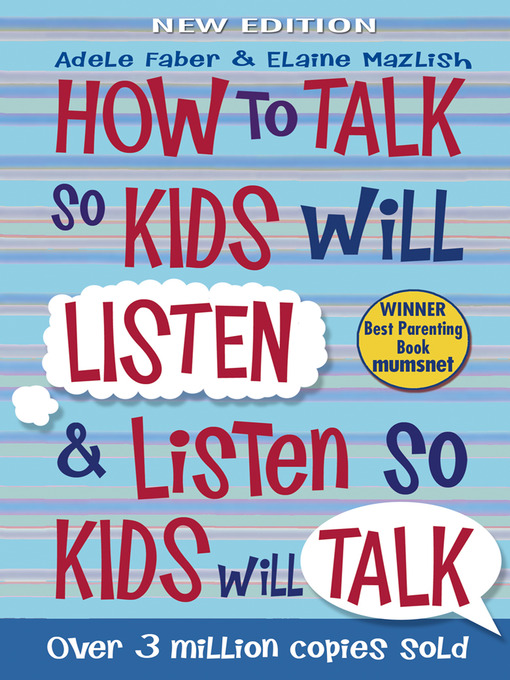This book was lent to me by my co-teacher in Sunday School, Shanda. You might be wondering why on Earth am I reading this kind of book. Well, first and foremost, I am fond of kids; preschoolers in general. Aside from them being playful, adorable, and all innocent, I am always fascinated on how they think and learn, how they communicate, how honest and pure their language could be, etc etc. :)
This book is pretty useful as it is packed with lots of application on the how-to's and what-not's. It mainly teaches us how to talk effectively, and how to listen effectively. As simple as it may sound, I think that it takes skills and experience to be able to master the effectiveness of it. Funny because I started to realize the amount of stress parents get dealing with their kids based on the real-life sample scenarios here! Yep, the book is packed with lots of real-life situations from various parents and teachers where readers can learn from.
Below is the summary that I gathered from each chapter's conclusion:
I. Helping Children Deal with their Feelings:
- Listen quietly and attentively
- Acknowledge feelings with a word ("Oh.. Mmm.. I see..")
- Can give feeling a name ("That sounds frustrating!")
- Can give the child his wishes in fantasy ("I wish I can make the banana ripe for you right now!")
II. To Engage a Child's Cooperation:
- Describe what you see, or describe the problem ("There's a wet towel on the bed.")
- Give information ("The towel is getting my blanket wet.")
- Say it with a word ("The towel!")
- Describe what you feel ("I don't like sleeping on a wet bed.")
- Write a note (Above towel rack --> "Pls put me back so I can dry. Thanks, Your Towel")
III. Alternatives to Punishment:
- Express your feelings strongly without attacking character ("I'm furious that my new saw was left outside to rust in the rain!")
- State your expectations ("I expect my tools to be returned after use okay?")
- Show the child how to make ammends ("What this saw needs now is a little steel wool and a lot of elbow grease.")
- Offer a choice ("You can borrow my tools and return them or you can give up the privilege of using them. You decide.")
- Take Action (Child: "Why is the toolbox locked?" // Dad: "You tell me why.")
- Problem-Solve ("Son, what can we work out so that you can use my tools when you need them, and so that I'll be sure they're there when I need them?")
IV. Praise and Self-Esteem. Instead of evaluating with "Good", "Great", etc:
- Describe what you see ("I see a clean floor, a smooth bed, and books neatly lined up on the shelf!")
- Describe what you feel ("It's a pleasure to walk into this room.")
- Sum up the child's praiseworthy behavior with a word ("You sorted out your toys in a separate box. That's what I call organized!")
V. To Free Children from Playing Roles:
- Look for opportunities to show the child a new picture of himself/herself ("You've had that toy since you were 3 and it almost looks like new!")
- Put children in situations where they can see themselves differently ("Sara, would you take the screwdriver and tighten the pulls on these drawers?")
- Let children overhear you say something positive about them ("He held his arm steady even though the shot hurt.")
- Model the behavior you'd like to see ("It's hard to lose, but I'll try to be a sport about it. Congrats!")
- When your child acts according to the old label, state your feelings and/or your expectations ("I don't like that. Despite your strong feelings, I expect sportsmanship form you.")
All these look so concise. Reading through the book would guide you further with explanations on the principle behind each item. I'm not a parent yet hence I wouldn't know if all these are soundful haha. So, what do you guys think? :P
